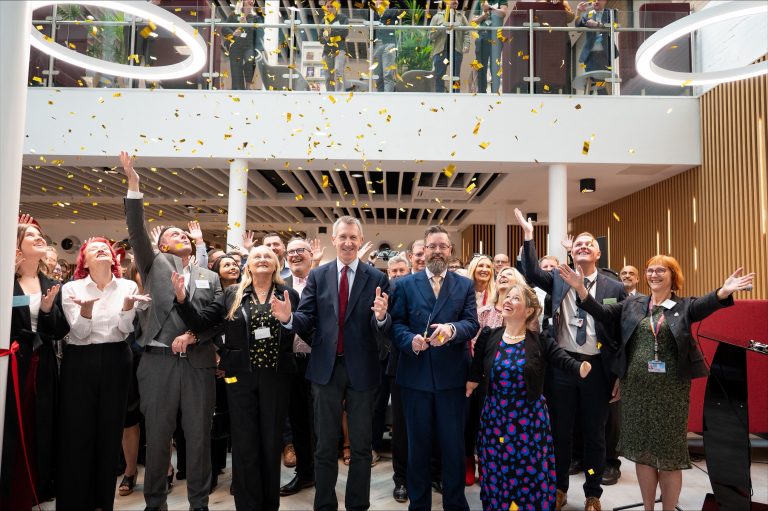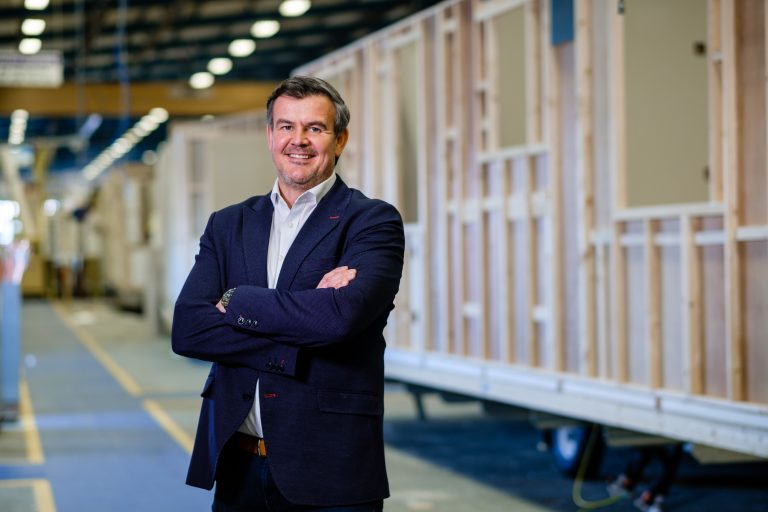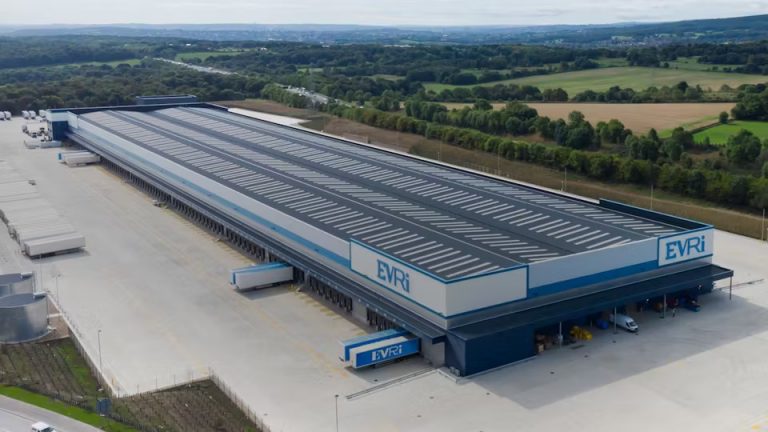Historic former mining college becomes world-class University Centre in £16m transformation
Rix group revenues decline amid sector challenges
JR Rix & Sons reported a drop in group turnover to £531 million in 2024, down from £591 million the previous year, as lower oil prices and reduced demand in the UK holiday market weighed on performance.
Gross profit declined to £37.5 million from £43.2 million, while profit before tax halved from £4.8 million to £2.4 million.
The group’s leisure homes businesses – Victory Leisure Homes and Prestige Leisure Homes – both recorded losses, reflecting weaker consumer demand for UK holiday properties. Petroleum operations also saw reduced profitability due to lower oil prices.
Windfarm-related activity slowed, impacting Maritime Bunkering, the group’s marine fuel supplier, and Rix Shipping, which operates a fleet of offshore workboats. Both divisions experienced reduced turnover and profits.
Rix Renewables delivered a stronger performance, recording a 100 per cent increase in revenue and a 520 per cent rise in profitability through its managed services for onshore and offshore wind projects. The group’s investment property portfolio also remained resilient, maintaining high occupancy and steady returns.
“Whilst significant headwinds were encountered in 2024, we have made good progress in many areas into 2025, to simplify and streamline the business,” said James Doyle, Group Managing Director.
UK hotel investment surpasses £1 billion in Q3 as single assets dominate
UK hotel investment totalled an estimated £1.04 billion in Q3 2025, marking a 28% increase year-on-year, according to Savills. The growth was primarily driven by single asset transactions, which accounted for 92% of activity and rose almost 60% above the 10-year Q3 average, despite overall investment volumes remaining slightly below long-term trends.
London remained the primary market, with £697 million in transactions, up 42% from the previous year. Prime yields for franchise hotels in the capital tightened by 25 basis points compared with H1 2024, reflecting continued investor interest.
Domestic owner-operators led the market in 2025, representing 45% of total acquisitions at £1.2 billion, a 4% increase on 2024 and 77% above the 10-year average. International asset managers returned to the sector, acquiring £734 million of hotels in the first nine months, with global buyers accounting for 60% and recording more than a tenfold year-on-year rise. UK pension funds also increased their activity, reaching £299 million, a 31% increase from 2024, as long-term sector confidence grew.
Regional markets saw sharp rises, with Scotland achieving £316 million YTD (+85%), the South West £180 million (+360%), and the West Midlands £256 million (+310%). Regional investment totalled £1.3 billion for the year to date, more than double 2024 levels.
David Kellet, Head of Hotel Capital Markets EMEA at Savills, says, “While the first half of the year was defined by operational and investor uncertainty in the UK hotel market, sentiment has stabilised through Q3 and we have seen over £1 billion of deals closed – a marked increase from 2024. The strength and resilience of the single asset market stands out, with single assets making up over 90% of deal volumes in the quarter. We expect the single asset market to remain robust whilst also anticipating more larger portfolios to transact in 2026. We look forward to what’s ahead for the UK hotel market.”
UK tech growth supported through 14 new regional projects
Fourteen government-backed initiatives across England, Scotland, Wales, and Northern Ireland aim to expand local tech sectors and create jobs outside London. The projects form part of the £1 million Regional Tech Booster programme, designed to help businesses and founders scale through training, guidance, networking, and localised support.
The programme targets specific regional needs, including early-stage gaming startups in Scotland, pathways from further education to entrepreneurship in Lancashire, scaling support for tech businesses in Yorkshire, an AI innovation challenge in Wales, and advanced connectivity growth in Suffolk. Several initiatives also focus on increasing diversity within the tech sector, with projects in Northern Ireland and the West Midlands supporting underrepresented founders and promoting AI adoption.
Complementing the projects, the programme includes National Investment Corridors, a series of events connecting regional tech businesses with investors. The first two events are scheduled in Bristol and Leeds.
The UK Tech Cluster Group will oversee delivery of the programme, working to ensure local expertise drives outcomes and that knowledge from individual projects is shared across ecosystems. Additional workshops will cover tech ecosystem planning and best practice for authorities nationwide. Further details, including event dates and venues, will be released by UK Tech Cluster Group.
Up to 125 jobs cut at North Lincolnshire refinery
Lindsey Oil Refinery in North Lincolnshire is set to reduce its workforce by up to 125 positions following the collapse of owner Prax Group and the appointment of administrators. The refinery employs approximately 420 staff and 500 contractors. Around 255 employees are expected to remain on site.
Attempts to secure a buyer to maintain full operations have been unsuccessful, despite at least two bids being submitted to operate the refinery with its complete workforce. The site remains operational and meets health and safety standards, with administrators prioritising both employee welfare and ongoing sale efforts.
The Insolvency Service confirmed that employees affected by redundancies will have access to statutory redundancy support. An investigation into the financial conduct of Prax Group and its parent company, State Oil, is underway. Union representatives have indicated potential support to help the refinery continue operations, though the outcome is not yet certain.
Surgical Innovations maintains steady performance amid market challenges
Leeds-based Surgical Innovations has reported interim results for the six months to 30 June 2025, showing revenues of £6.15m, largely unchanged from £6.18m in the same period last year. Adjusted EBITDA rose to £0.37m, up from a break-even position in H1 2024.
The company, which designs, manufactures, and distributes minimally invasive surgical technology, said its cost reduction and operational improvement initiatives from 2024 are beginning to yield results.
Sales of SI-branded products remained strong across key European markets, supported by marketing and training initiatives focused on sustainability. European growth helped offset weaker performance in the UK and US, where near-term market challenges continue. UK revenues were £2.74m, compared with £2.75m in H1 2024. US sales declined to £0.4m from £0.5m, due to the impact of tariffs and a distributor warehouse relocation.
Original equipment manufacturer (OEM) sales were below last year’s, reflecting normalisation after elevated demand in previous periods. Performance in the Rest of World segment decreased to £0.23m from £0.81m, primarily due to lost business in the Middle East and disruptions linked to conflict in the Israel region.
The company expects modest improvements in revenue and margins for the remainder of FY25, with growth momentum anticipated to continue into the first half of FY26.
Evri invests £36 million in Barnsley hub and UK parcel network
Evri Group has announced a £36 million investment programme to expand its UK parcel network ahead of the peak trading season. The Barnsley superhub has received a £4 million small item sorter to improve processing of smaller parcels, including imported goods, with a further £25 million allocated to add a third tier, raising capacity to 5.5 million parcels per day by Christmas 2026.
Upgrades and strategic depot moves are also underway in Avonmouth, Lutterworth, Pen-Y-Bont, Southampton, and Bury St-Edmunds. A new depot in Belfast will improve cross-border delivery between Northern Ireland and the Republic of Ireland. Combined investment across these sites totals approximately £7.5 million.
Evri will scale its workforce to more than 30,000 couriers for the festive period, alongside 70 new operational roles. The investment builds on a £50 million upgrade of the ParcelShop and Locker network, now processing 4.4 million parcels daily.
Digital improvements support the network, including enhancements to Evri’s app, which has 2.7 million monthly users and facilitates parcel tracking, delivery preferences and higher first-time delivery rates.
Following the acquisition of Coll-8 in Ireland and the pending merger with DHL eCommerce UK, Evri is set to deliver over one billion parcels and one billion business letters annually.
CEO Martijn de Lange said, “Following a historic year for Evri, with our acquisition of Coll-8 in Ireland and our landmark merger with DHL, which is due to complete imminently, we continue to invest significantly in our operation to ensure we deliver the best possible service to our clients and customers, especially at the busiest time of the year for our industry. We’re on track to become the UK’s premier parcel delivery business and this investment supports our continued growth as we will deliver more than a billion parcels and a billion letters a year globally.”
Yorkshire business confidence dips during September
£20m facility supports expansion at CF Booth
CF Booth, a family-owned metal recycling business based in Rotherham, has secured a £20 million asset-based lending facility from Independent Growth Finance (IGF) to fund expansion and operational improvements.
Founded in the 1920s, CF Booth has grown from a local metal trader into one of Europe’s largest independently operated metal recycling companies. The firm employs more than 200 staff and trades both ferrous and non-ferrous metals, supplying recycled materials to customers across the UK and internationally.
The new financing is intended to enhance working capital and support ongoing investment in the company’s operations and performance. Interpath Advisory acted as the adviser on the transaction.
The facility positions CF Booth to pursue additional growth opportunities, improve operational efficiency, and strengthen its ability to take on new contracts.
West Yorkshire among six regions awarded £25 million to boost creative industries
Six UK regions have each been awarded £25 million to support growth in creative sectors, including film, TV, music, fashion, and video games. The funding forms part of the Government’s Creative Places Growth Fund, announced in the 2025 Creative Industries Sector Plan.
The regions receiving funding are Greater Manchester, Liverpool City Region, North East, West of England, West Midlands, and West Yorkshire. Allocations will be distributed over three years from the 2026 financial year. Local Mayoral Strategic Authorities will manage the funds, providing businesses and creative professionals with access to finance, mentoring, networking opportunities, and skills programmes tailored to regional needs.
Alongside this, more than 100 micro, small, and medium-sized creative enterprises across twelve regions have secured a share of £8 million through the Create Growth Programme. Grants range from £20,000 to £140,000, supporting companies to commercialise ideas, attract investment, and scale operations.
Eligible businesses operate across sectors, including gaming, music, marketing, animation, and design. Regions benefiting include Greater Manchester; Norfolk, Suffolk, and Cambridgeshire; North East England; West of England; Devon and Cornwall; South East; Leicestershire, Derbyshire, and Greater Lincolnshire; Nottingham and Nottinghamshire; Hull and East Yorkshire; West Midlands; West Yorkshire; and Hertfordshire.
The funding is intended to strengthen local creative ecosystems, enhance innovation capacity, and provide regional businesses with tools to grow and connect with private investors.












